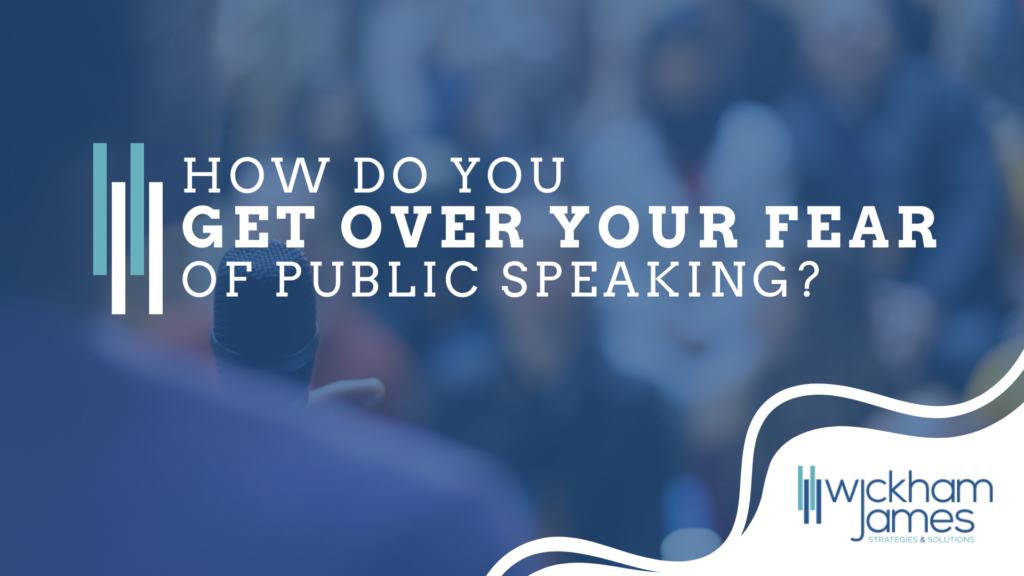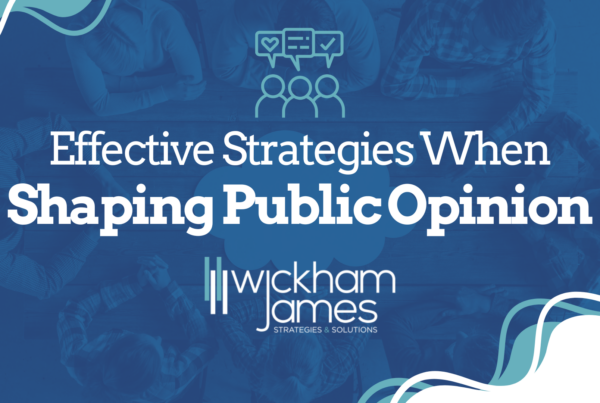
If you get a little jittery at the thought of having to speak in public, you’re not alone. Glossophobia, the fear of public speaking, is one of the most common fears on the planet. Why is that a problem? If you want to get ahead in many careers, the fear of speaking before a group of unfamiliar people can hold you back from opportunities to demonstrate your unique understanding of the field, your mastery of topics you worked hard to become a subject matter expert in, or your ideas for how to drive the industry and your organization forward. This is why we felt it was important to tackle the issue of public speaking for those who suffer from it. Continue reading for our thoughts on how you can start to whittle away at what seems like an insurmountable challenge.
Who is comfortable!?
One of the most important things you can do is recognize that you’re not alone. In fact, 40 percent of any group of people you are going to be staring at will completely understand and admire your bravery just getting up there because they themselves have a fear of public speaking. The good news is that many of the remaining 60 percent are much more interested in what you are about to say, and could care less about how you say it.
Talk to the truth, not to the people
Forget the people. Much of the fear of speaking comes from a fear of judgement: How is the audience going to see you? Do you sound stupid? Are you embarrassing yourself? Are you going to get rejected?
News flash: You will sound smart if you know your stuff…even if your delivery is terrible!
Yes, we said it.
If you are speaking about something, it is often because you are passionate about that topic, and are doing the work because you believe in sharing your knowledge on the subject. Focus on the value of the ideas you are sharing, not the people who will be hearing them. Those ideas and concepts need to be heard. Don’t let fear, judgement, or self-doubt get in the way of you voicing what you believe they need to understand! Forget the people, you can tune them out completely if you need to, just focus on sharing the truth.
Understand what is happening
During a time of panic, the areas in our brain that are responsible for self-evaluation and emotional processing are shifted into overdrive, and we experience a heightened response to any perceived threat. This triggers our fight-or-flight response, which is our body’s way of preparing to defend itself against perceived threats.
When it feels threatened, our brain tells our body to release adrenaline and steroids. Once this happens our blood sugar levels, and thus energy levels, rise. Meanwhile our blood pressure and heart rate increase, which then sends more blood to our muscles to react. Great for escaping predators who want to eat us in the wild, not so great for getting ready to give a speech.
How do you know if your body is entering into fight-or-flight mode? Look out for some of these body reactions:
- Dry mouth
- Stiffening of the upper back muscles
- Accelerated heartbeat
- Sweating despite no physical activity
- Trembling
- Feelings of dizziness
- Nausea or vomiting
- Tense muscles
- Feeling like you just want to shrink or escape
You can positively affect these by:
- Practicing in the mirror or on video first, next to a group of friends, then to an audience that doesn’t care who you are (Warren Buffet got over his fear of public speaking by teaching an investing class to retirees twice his age).
- Practice more.
- Organize your thoughts and visually lay out your presentation.
- Lightly exercise before speaking. This will get your blood flowing, relieve some of that nervous energy, and send oxygen to the brain. That oxygen will help you think faster.
- Use a PowerPoint for reference or to guide the points you want to make if you are afraid of forgetting your material.
- Sip room temperature or warm water to lubricate your throat. You can add lemon or another citrus fruit to your water for extra lubrication. Avoid sugary drinks before speaking.
The mental
There are several methods that can be used to attack a fear of public speaking. While preparation and practice go a long way, sometimes the fear is deeper than that. Cognitive behavioral therapy can be highly beneficial for those who have experienced a trauma or were subject to prolonged microaggressions that have created mental blocks.
Working with a therapist can help you identify the root cause of your anxiety. For example, you might discover that you actually fear ridicule because someone teased you as a child, or told you that you were terrible. You may have been performing at some point and had an accident, a trip, or forgotten your line. The sounds of people laughing may haunt your subconscious and can create negative reinforcement or release trauma that is buried deep inside. Exploring those fears and negative thoughts with your therapist can help identify and root out those thoughts, to get you to a better mindstate.
What you can do right now is realize that the audience wants you to succeed. Remind yourself that you are the expert in what you’re discussing, and let go of caring about being perfect. Half the time no one even sees what you’re obsessing over, and the other half of the time they don’t care because they are so focused on what you’re saying. Accordingly, you can go ahead and eliminate “I can’t make any mistakes” and “everyone will think I’m incompetent” from your mental vocabulary of thoughts. In reality, the only person who will know you made a mistake is you.
Get ahead of it
This is your fight, and you can win. But as with any battle, or sport (for those of you who played them), you have to practice your technique…a lot. You have to make sure that you are both physically and mentally preparing yourself through small yet consistent actions. Progress can feel small, but a lot of small wins are required to get a big win.
You wouldn’t just try to qualify for the Olympics without putting hours and hours into building muscle, training, working on your technique, getting coached by lots of different people, and understanding what others have done to go from zero to Olympic athlete…so why would you think you should instantly be good at something as challenging for you as speaking before a group you do not know?
To be frank, you wouldn’t!
So treat speaking the same way. Practice by yourself. Record it. Watch it. Learn from it. Do it again.
Enroll in improv classes, join an organization that trains people to speak in public like Toastmasters, or start by speaking in front of one person, then two, then three…have them give affirmations and positive feedback. The most important thing is to start.
At Wickham James, we love big challenges and doing the things required to embrace bold change. We believe that impossible is a four letter word, and want to help others reach their hard goals. If you want to learn more about the consulting, mediation, and speaking that we do, stop on by our website to get the scoop. We are here for all of your hard problems.




